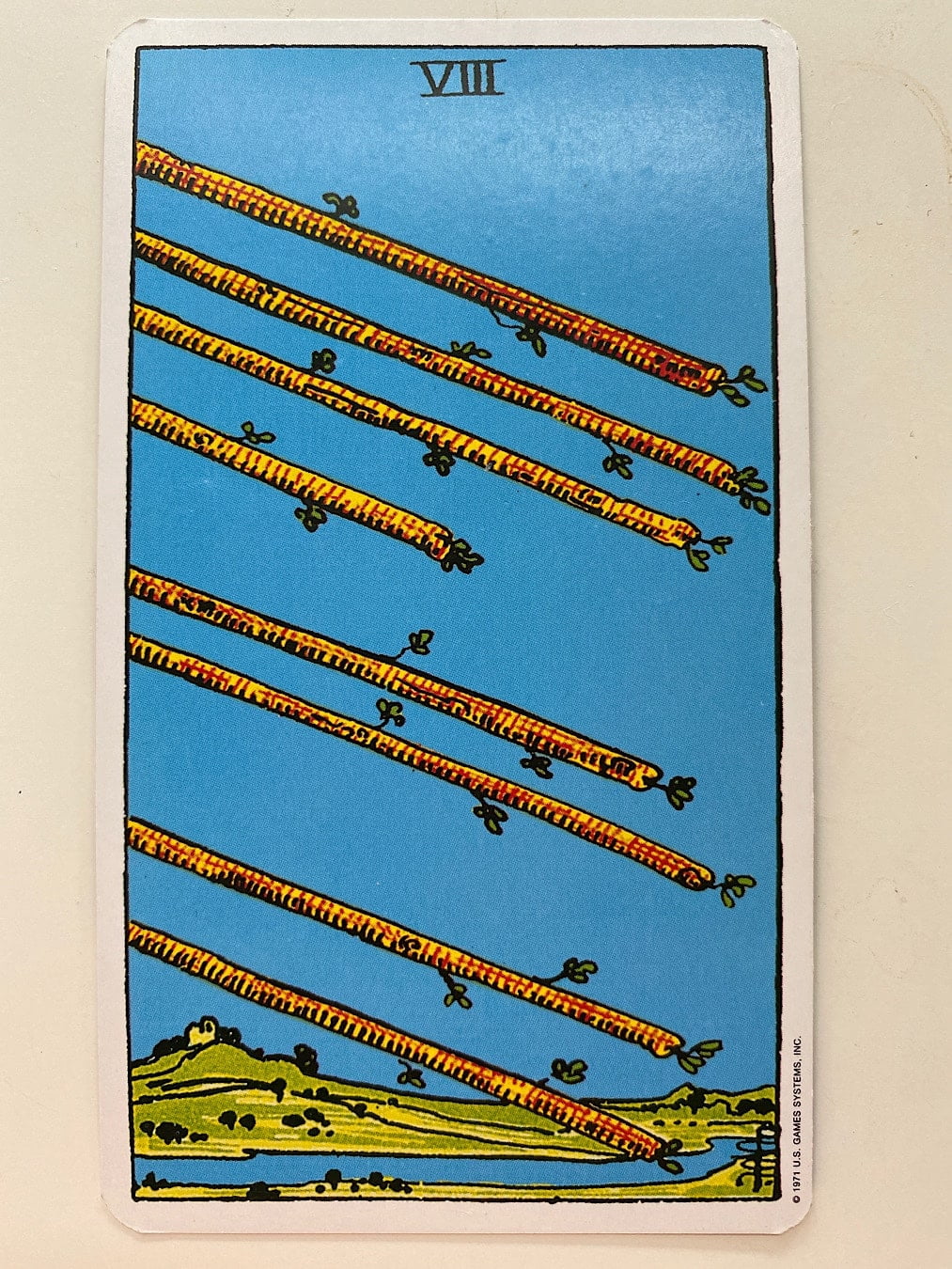
The Major Arcana has 78 cards. Each card represents a different part the Tarot. If you have read your Tarot deck you should know each one. The Fool, The High Priestess (The Magician), and The Judgement are some of them.
The Fool
The Fool is the card that represents new beginnings and freedom to experiment. He encourages us all to take risks and step out of our comfort zone, trusting that the universe will catch them. He represents our playful and carefree spirit, our inner child. He will help us take risks in life and embrace the adventure ahead.
The Fool is the first card in the Major Arcana deck and signifies new beginnings and infinite potential. It is also part of the Rider Waite Tarot Deck.
The High Priestess
The High Priestess of the major Arcana is a card in the Tarot decks. It is the second card in the Major Arcana. It is also known by the High Priestess I. It is the 2nd trump in a Tarot card pack.

The High Priestess encourages you to observe what is going on around you. The High Priestess encourages you develop your psychic abilities and to pay attention to your intuition.
The Magician
The Major Arcana's Magician is one of them. It symbolizes mastery, skill, and the desire for success. It demonstrates that you have the skills and ability to achieve your goals. You can expect positive outcomes by utilizing these skills and capabilities. This card is often associated in magic and alchemy.
The Magician can help you manifest your dreams. The Magician can assist you in bringing all your resources to bear on any task, regardless of whether it is physical, mental or emotional.
The Judgement
The Tarot's major card is the Judgement. It depicts a scene from the First Epistle of Thessalonians (4:13-18), which is often considered a prelude to the Last Judgement. The Lord will appear to the faithful with a shout, an archangel's sound and a shout.
The Judgement is a metaphor for letting down negativity. The long-term consequences of holding onto negative emotions and past memories can be serious. It's important to be open-minded and accept what is happening. Sometimes, the Judgement is reversed in other cases. This could mean that you have difficulty moving on with an old relationship or that things are stagnant.

The Empress
The third card in Major Arcana is the Empress. She is a symbol of abundance and nurturing. Her traits include kindness, compassion and connection to nature. Her love is both romantic and motherly. The Empress is also associated in some way with Venus, the musical note F sharp, green, and the Hebrew letter Dalet.
The Empress also signifies fertility. The Empress card can be used to indicate pregnancy. However, it can also signify a new idea or project. If there is a project you are working on, the Empress could be the birth. This card can also symbolize good fortune and a nurturing spirit.
FAQ
What are good hobby ideas?
Your favorite hobbies are ones you enjoy. You'll be more motivated to do what you love. You will have a reason when you feel sick or tired.
There are many hobbies that we all enjoy: gardening, painting and crafts; photography; cooking; sports and games; reading music and film-making; collecting; cycling, walking, dancing and writing; playing instruments and other musical instruments.
You might also consider volunteering at a local charity shop or animal shelter, children’s hospital, hospice, elderly home, school, community centre, church, and other places.
Perhaps you want something more adventurous. Consider scuba diving and skydiving.
If you want to go further afield, there are plenty of unique ways to spend time in nature. These include caving.
What kind of hobbies is best for introverts.
The ability to focus on just one thing is a hallmark of introverts. They tend to prefer solitary activities such as reading, writing, playing music, watching movies, etc.
They enjoy being alone and spending time alone. They do not like to socialize all day. In fact, they often find themselves bored when surrounded by people.
This is why introverts often choose hobbies that require them to be alone. You might find them reading books, listening, playing music, taking photos, writing poetry or painting.
Many introverts choose to live alone. This allows them to concentrate on their hobby and not be distracted.
What are competitive hobbies, you ask?
There are many competitive sports, including running, swimming and cycling, as well as golfing, tennis and other activities.
They're a great way to get social interaction and are enjoyed by those who love physical activity.
You'll likely find others who are interested in your hobby if it involves physical activity.
This could include joining a club/group that allows you to play sports together regularly.
You might also choose to participate in team games involving playing alongside others.
These include netball (soccer), football (cricket), netball (basketball), hockey, baseball, volleyball and badminton.
There are many types of competition.
Some competitions are only for recreational purposes.
Others are designed for competitors to prove their skill.
Some are even designed to reward outstanding performance.
In these cases, the winners receive prizes.
Other competitions test strength and endurance.
These are called endurance events.
For example, marathon races, triathlons, Ironman Triathlon, etc.
These events are often contested by athletes who train hard.
They will adhere to a strict training program that prepares them mentally as well as physically.
They may also need to spend some time away from home during preparation.
It is important to remember, not all athletes will compete in every type and event.
How do I get started with my new hobby?
To start a new hobby, you must first decide what type of activity you would like to do.
Passion is key once you have chosen your topic.
Understanding why you are interested in a hobby is important. It will give you some direction and purpose.
Once you've chosen the hobby you would like to pursue you can start planning.
Think about the equipment that will be needed.
You should consider whether or not you will need to take classes or attend seminars.
Ensure that you have enough space for your hobby.
A club or group might be something you consider. These groups often offer advice and support.
Also, consider how much money your hobby would cost.
What does a hobby really cost?
The only thing that costs less than a hobby is time. But it could take years to achieve what you want if you are serious about it.
However, there is something that can help. It's called passion'. Passion will help you put in the effort to succeed.
Once you put in the hours, you might find yourself addicted to the activity. This is when the real fun begins. You are now doing something that you love and getting better every day. This will mean that you will have likely made significant improvements by the end.
Don't fret about how long this takes. Don't be afraid to try. You might be surprised at the results!
Statistics
- A new survey by Pew Research Center of teens ages 13 to 17 finds that 36% of girls feel tense or nervous about their day every day; 23% of boys say the same. (pewresearch.org)
- This 100% accurate personality-analyzing hobby quiz discovers your passion based on your characteristics. (quizexpo.com)
- The intensity of the dialogue partners' bond at the end of the forty-five-minute vulnerability interaction was rated as closer than the closest relationship in the lives of 30 percent of similar students. (time.com)
- 37% Video Games 36% Travel 36% Health and Fitness (quizexpo.com)
- I am 100% biologically a woman (discover.hubpages.com)
External Links
How To
How to start gardening
Gardening has been around since the dawn of agriculture. It requires patience, persistence, and determination. First, choose a place where you would like to grow food. It could be large land, or just your backyard. Next, select the kind of plants that are most appealing to you. Do you prefer vegetables or flowers? Some people are passionate about growing herbs, while others like raising livestock like rabbits. Before you decide which crops you will plant, consider the amount of space you have. If your climate is cold, you may decide to plant berries and fruits.
After you have decided what you want to plant, it is important that you prepare the soil. Your plants' success or failure will depend on the soil they are placed in. High quality soil is rich in organic matter, which feeds your plants' roots. Organic matter can include leaves, twigs and grass clippings as well as manure and compost. Once your soil is prepared, it's time to add nutrients. You will need different amounts of nutrients depending on which type of plants are being grown. To determine these values, you can use a fertilizer calculator online. Many fertilizers are available, so make sure you know what you are buying.
Now you need to wait for the seeds to germinate. This process usually takes anywhere from 2 weeks to 3 months, depending on the weather and the temperature in your area. After seeds have sprouted, water them every day. Watering your plants too little or too often can cause problems. Ensure you give your plants enough water at regular intervals and avoid overwatering. Overwatering could lead to root rot as well as fungal diseases. When watering your plants, remember that most plants require less water during the warm summer months than in winter. Also, remember that certain plants need to dry out after watered. For tomatoes, it is important to keep them moist but dry. They are not happy to be in soggy soil. After the flowers have stopped, they must go into dormancy. Plants go dormant when they stop producing new growth and instead store energy for next year's harvest. Dormancy means that the plant stops communicating with its roots about producing food. Plants continue to store energy throughout this period. However, the plant will die if temperatures drop below freezing or there is insufficient sunlight.
Urban areas can limit your choices for plants. Concrete sidewalks, roads, buildings and parking lots are all common in urban areas. These blocks block sunlight from reaching ground level. Concrete absorbs light and prevents soil below from getting sufficient sun exposure. This is why many plants cannot thrive in cities. However, many plants can still thrive in urban environments. Many trees, shrubs and perennials can thrive in urban environments. In addition, many annuals can be grown indoors in containers. You can grow fresh greenery year-round in containers.
You are now ready to plant your garden!